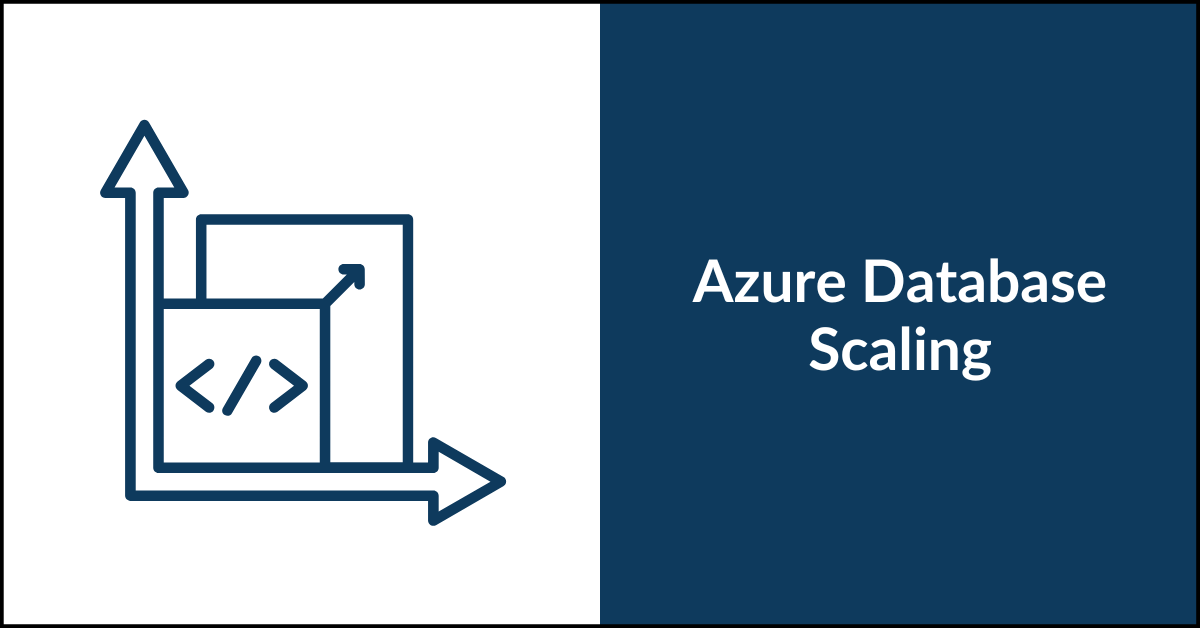
At Far Reach, we’re always looking for ways to be more efficient and save clients money. Azure Cloud Hosting has come out with many tools that allow us to configure clients’ systems to save costs and be more systematic with resources. One of these features is Azure database scaling, which allows us to schedule database capacity for peak hours, off hours, and in between.
Let’s dive into Azure database scaling and explore how clients can leverage this functionality to streamline environments and save on hosting costs.
Looking for the right software development partner?
Learn what to look for and how to evaluate a potential partner.
The Need for Database Scaling
Many business applications don't need to operate at full capacity 24/7. During non-peak hours or specific periods—like midnight to 6 a.m.—the demand for system resources may decrease significantly, especially if it’s a system used internally by staff. Azure database scaling allows us to adjust database capacity based on variable usage at different times of day, ensuring efficient resource allocation and cost savings.
Scaling Down for Efficiency
Shutting down a database entirely isn’t feasible, but scaling it down during off-peak hours can be a wise strategic move. This means the system continues to function but doesn't need to be as fully prepared for data-intensive operations as during higher-usage time periods. As a result, businesses can avoid paying for full database scale overnight or on weekends when demand is lower.
Tailoring Environments for Test/Dev Teams
Azure database scaling offers flexibility for test and development environments as well, meaning environments can be scaled back when the Far Reach team isn't actively working on a project. This automation ensures that resources are allocated strategically and costs are kept down during periods of inactivity.
Examples of Database Scaling
We’re transitioning more and more clients to automated database scaling, but here are some examples of clients already taking advantage.
Fundraising Application - A client’s fundraising platform might be used around the clock, but most activity happens between 6 a.m. and midnight. Outside of these hours, the database scales down, saving the client resources—most notably, money. If a user comes to the application, it will still function as expected at the lower database level.
Agricultural System - A data-driven application that a client uses internally scales back outside of business hours. Since most data-intensive workflows are happening during business hours—with more night and weekend usage during the busy season—we can scale the database accordingly. Internal users know that if they try to do a data-intensive task in the middle of the night, they may experience slower load times.
When applications like these are mostly used during certain days and times, database scaling is a quick win for saving money. And in general, individual users won’t notice a difference even if they hit an application after hours.
Advising Clients as a Partner
Not every custom software development company serves as a partner for their clients. But at Far Reach, we take our advisory role seriously. We’re always on the lookout for ways to save clients money and use resources more efficiently. When we see opportunities, we present them along with options for how to proceed.
Clients work with us because we’re a partner committed to helping them succeed. They appreciate the recommendations we bring to them, especially ones like Azure database scaling that they wouldn’t discover on their own. And as their partner, we consider it our responsibility to learn about available features and potential improvements and recommend them to clients where it makes sense.
In the case of database scaling, it’s an easy recommendation. We make a few configuration adjustments and the client saves money, allowing them to invest more in other high priority things such as maintenance, enhancements, or new features instead of on hosting.
Azure database scaling is a powerful tool for organizations aiming to strike the right balance between performance and cost efficiency. By automating scaling processes, tailoring database capacity to match usage patterns, and customizing test and development environments, clients see the level of performance they expect while also saving money. It’s a win-win.